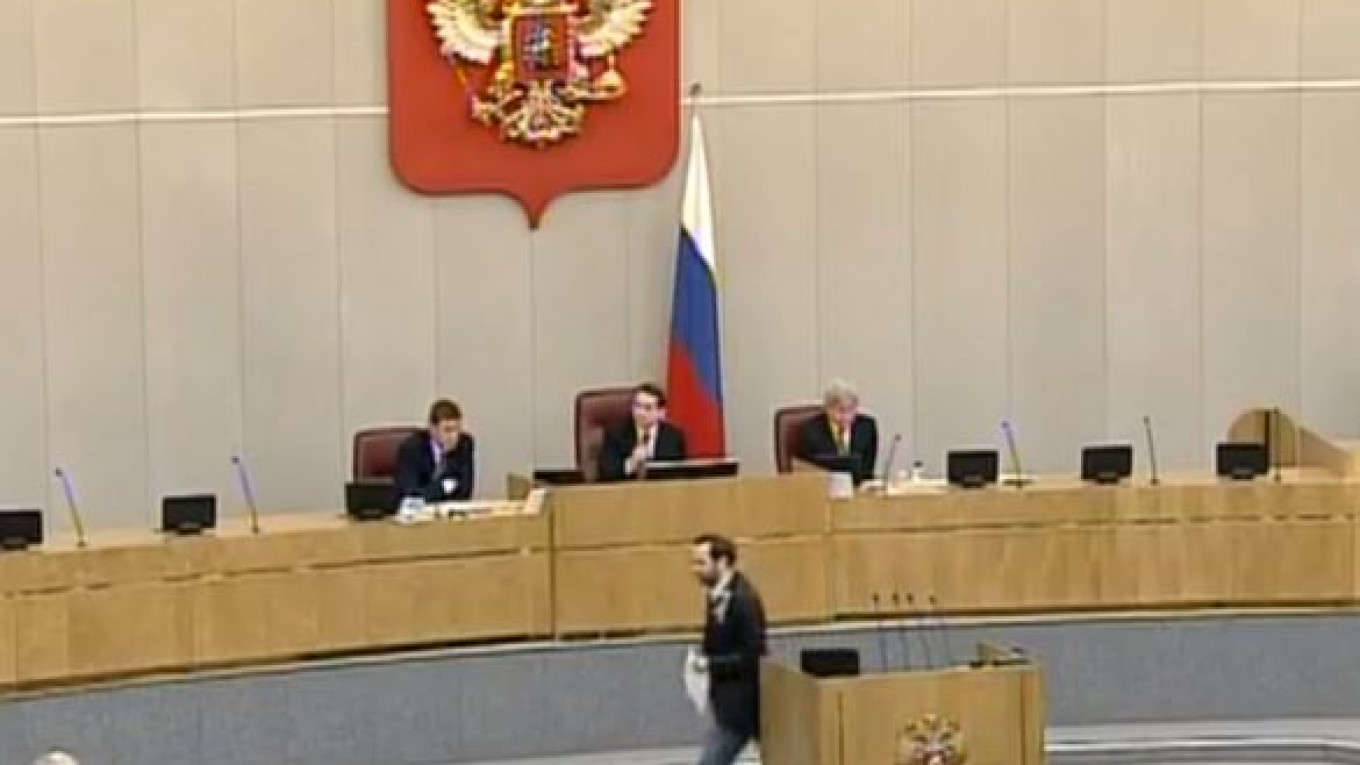The State Duma's Ethics Commission is considering introducing a dress code explicitly defining what lawmakers must wear when attending parliamentary meetings.
At present, there is an unwritten rule that parliamentarians should attend Duma sessions in formal wear, but deputies often turn up in more relaxed attire.
"It's essential that we define more clearly what is meant by formal wear," Ethics Commission member Raisa Karmazina told Izvestia, adding that deputies should not be allowed into the Duma if dressed inappropriately.
Opposition Deputy Ilya Ponomaryov, a key protest organizer and member of the social-democratic Just Russia party, is known for attending Duma sessions in jeans and a sweater and has been cautioned in the past for doing so.
Asked to comment on the proposal, Ponomaryov reacted sarcastically, telling the newspaper that it was "highly flattering" that Duma rules could be changed because of his wardrobe choices.
"It seems that our deputies have been more concerned by my external appearance of late than with lawmaking activity," he said.
Related articles:
A Message from The Moscow Times:
Dear readers,
We are facing unprecedented challenges. Russia's Prosecutor General's Office has designated The Moscow Times as an "undesirable" organization, criminalizing our work and putting our staff at risk of prosecution. This follows our earlier unjust labeling as a "foreign agent."
These actions are direct attempts to silence independent journalism in Russia. The authorities claim our work "discredits the decisions of the Russian leadership." We see things differently: we strive to provide accurate, unbiased reporting on Russia.
We, the journalists of The Moscow Times, refuse to be silenced. But to continue our work, we need your help.
Your support, no matter how small, makes a world of difference. If you can, please support us monthly starting from just $2. It's quick to set up, and every contribution makes a significant impact.
By supporting The Moscow Times, you're defending open, independent journalism in the face of repression. Thank you for standing with us.
Remind me later.


